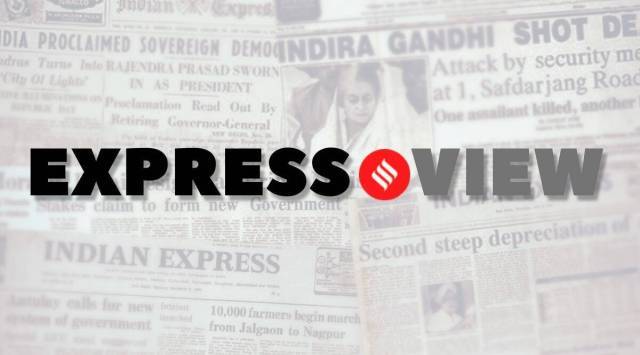Opinion Express View: Carlsen’s absence from the world championship could hurt chess itself
An endorser of apparel giants, stake-holder in global firms, a fantasy football faithful, he broke away from the conventional chess-player mould. His was the aura that pulled youngsters into the game
 Carlsen's absence from the world championship could hurt chess itself, just after the popularity of the game had boomed during lockdown. (Express Photo)
Carlsen's absence from the world championship could hurt chess itself, just after the popularity of the game had boomed during lockdown. (Express Photo) Either Ian Nepomniachtchi or Ding Liren of China will be crowned the world champion of chess at the St. Regis hotel in Astana on May 1, ending the decade-long reign of Magnus Carlsen. But the Norwegian will continue to cast his intimidating shadow on the chess-scape. For as long as Carlsen keeps playing the game, he will continue to be considered the best player of his time, still the king though without the crown.
It is not the fault of Nepomniachtchi and Liren that Carlsen decided to skip the championship. They are two virtuosos themselves, and they are endowed with the capacity to rule the chess world for years to come. But they realise that taking his crown is not the same as beating the man. It’s what Roger Federer might have felt when he claimed the only French Open of his life, albeit the opponent was not Rafael Nadal, the Emperor of Clay, but Robin Söderling. It did not devalue the achievement of Federer, just as it would not that of Nepomniachtchi or Liren. Their title would be legitimate and honourable. Yet, it would not be the same as winning the title by beating Carlsen. When Bobby Fischer lost his crown without even lifting a pawn to defend it, deliberately failing to meet the deadline for formal acceptance of federation rules, Anatoly Karpov was declared de facto champion in 1975. It took Karpov a decade of title defending to demonstrate that he was a worthy successor. Later, every champion from 1993 to 2006 was considered inferior as Garry Kasparov was organising a breakaway world championship.
Carlsen’s absence from the world championship could hurt chess itself, just after the popularity of the game had boomed during lockdown. For, Carlsen was the face of the game, perhaps the most glamorous chess player ever. An endorser of apparel giants, stake-holder in global firms, a fantasy football faithful, a fitness and poker enthusiast, he broke away from the conventional chess-player mould. His was the aura that pulled youngsters into the game. His biggest legacy to his successor would be the crushing burden of the title itself.





